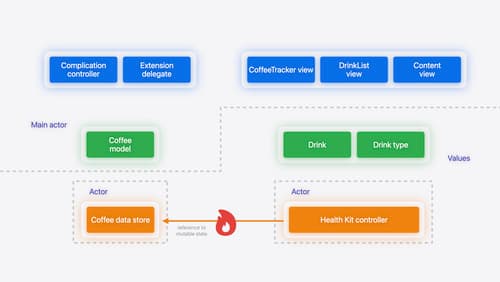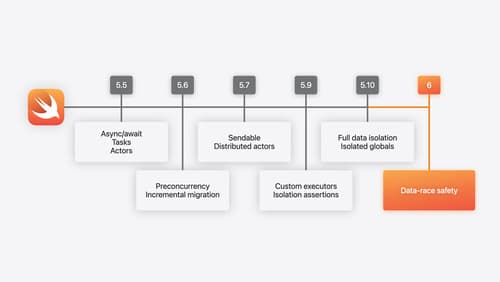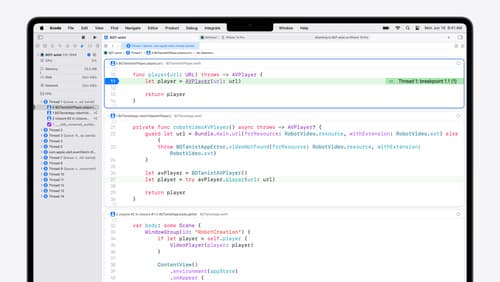Should I opt into strict concurrency checking?
Asked on 2024-08-02
1 search
Opting into strict concurrency checking can be highly beneficial for your app. Here are some key points to consider:
-
Data Race Safety: Enabling strict concurrency checking helps catch potential data races at compile time rather than at runtime, which can significantly improve the correctness and safety of your code. This is particularly useful if you're experiencing hard-to-reproduce crashes (Migrate your app to Swift 6).
-
Incremental Adoption: You can enable strict concurrency checking incrementally. Start with simpler targets like the UI layer, which often runs on the main thread and uses APIs that are concurrency-safe (Migrate your app to Swift 6).
-
Handling Warnings: When you first enable strict concurrency checking, you might see a large number of warnings. It's important not to panic. Many of these warnings can be resolved quickly with simple changes, such as marking methods to run on the main actor or making global variables immutable (Migrate your app to Swift 6).
-
Module-by-Module Approach: You can adopt strict concurrency checking on a per-module basis. This allows you to gradually update your codebase and manage the complexity of the changes (What’s new in Swift).
-
Compiler Guidance: The Swift compiler provides guidance on how to resolve concurrency issues, making the process more manageable (Migrate your app to Swift 6).
-
Future-Proofing: Adopting strict concurrency checking prepares your app for future updates and ensures that new features do not introduce concurrency bugs (Migrate your app to Swift 6).
In summary, opting into strict concurrency checking is a good strategy to improve the safety and reliability of your app, especially if you are planning to adopt more concurrency features or if you maintain a public Swift package.

Migrate your app to Swift 6
Experience Swift 6 migration in action as we update an existing sample app. Learn how to migrate incrementally, module by module, and how the compiler helps you identify code that’s at risk of data races. Discover different techniques for ensuring clear isolation boundaries and eliminating concurrent access to shared mutable state.

What’s new in Swift
Join us for an update on Swift. We’ll briefly go through a history of Swift over the past decade, and show you how the community has grown through workgroups, expanded the package ecosystem, and increased platform support. We’ll introduce you to a new language mode that achieves data-race safety by default, and a language subset that lets you run Swift on highly constrained systems. We’ll also explore some language updates including noncopyable types, typed throws, and improved C++ interoperability.

What’s new in Xcode 16
Discover the latest productivity and performance improvements in Xcode 16. Learn about enhancements to code completion, diagnostics, and Xcode Previews. Find out more about updates in builds and explore improvements in debugging and Instruments.
